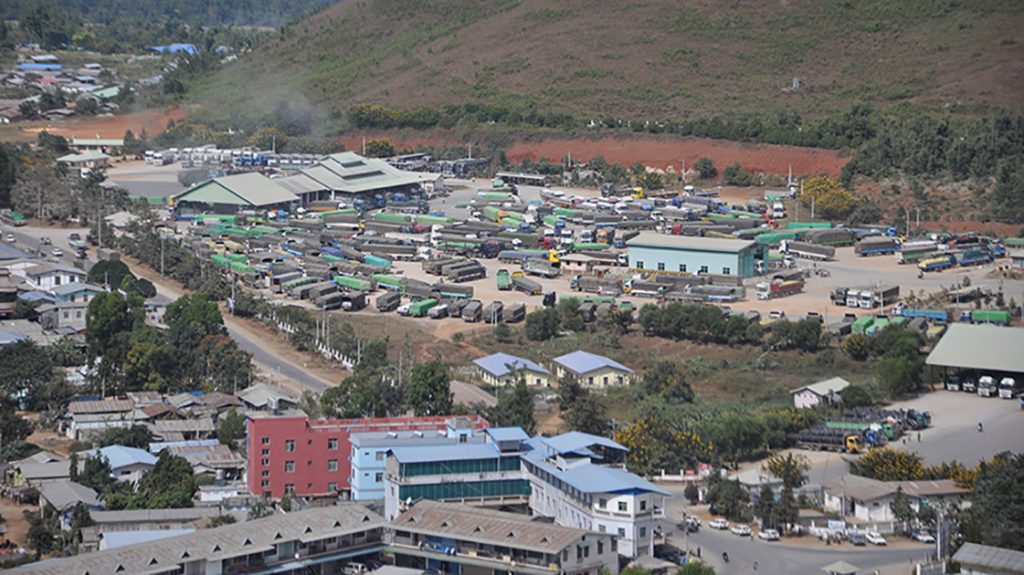The value of Sino-Myanmar border trade through the Muse gate jumped to US$1.47 billion between 1 October and 27 December in the current financial year, an increase of $554.7 million compared to the corresponding period of the previous fiscal, according to the Ministry of Commerce.
Exports through the Muse gate rose considerably to $1 billion, while imports were valued at $461 million. Both exports and imports have climbed over the past two months of the current fiscal.
Muse is an important border gate in Myanmar and handles the largest volume of trade. But at times, it has experienced a sharp drop in trade on account of China clamping down on illegal goods, resulting in a halt in trade of agricultural products.
Myanmar merchants find it difficult to export goods to China through the legitimate channels as they find the tax levied by the neighboring country too high. Therefore, rice confiscation and price manipulation often occur in border trade.
To resolve this, Myanmar needs to convert the government-to-government (G2G) agreement into a sustainable pact, according to trade bodies. Myanmar requires G2G or business-to-business (B2B) agreements for the trade of pulses and beans, corn, sesame, fish, and shrimp, to grab a share of the Chinese market, they said.
The government and the private sector also need to move forward through public private partnerships (PPP), according to the Myanmar Rice Federation.
Myanmar exports rice, sugar, pulses, sesame seeds, corn, dried tea leaves, fishery products, minerals, and animal products to China, while it imports agricultural machinery, electrical appliances, iron and steel-related materials, raw industrial goods, and consumer goods from the neighboring country. — GNLM
(Translated by Ei Myat Mon)



